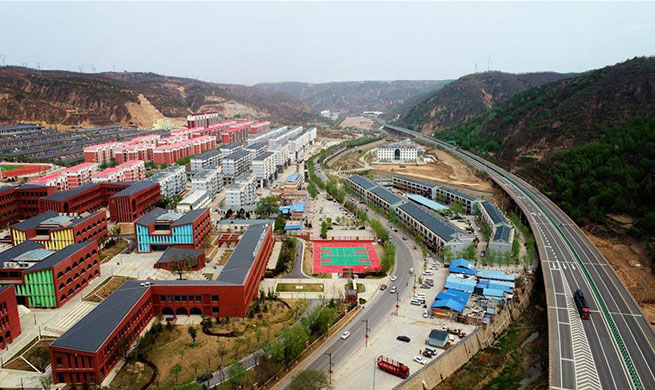BERLIN, May 8 (Xinhua) -- New contract rents in Germany have fallen for the first time in 14 years, including in major cities such as Munich, Berlin and Frankfurt, the F+B research and consulting specialist for housing, real estate and environment announced on Wednesday in Hamburg.
The German real estate consultancy recorded a decline of 0.3 percent in new contract rents in German cities in the first quarter of this year compared with the fourth quarter of 2018.
"Whether this trend will consolidate in the coming quarters is probably one of the most exciting questions in housing policy," said F+B managing director Bernd Leutner.
F+B found declining rent prices in five out of seven major German cities, with the sharpest decline in Frankfurt of 2.4 percent to 11.60 euros per square meter.
In Berlin, rent prices fell by 1.7 percent to 9.30 euros per square meter and even in Munich, rents fell by 1.3 percent.
At 16.80 euros per square meter, however, tenants in Munich still had to spend considerably more on rent than in any other German city.
In contrast to rents, the upward trend in residential property prices in German cities had continued unabated, according to F+B.
Since the beginning of 2004, purchase prices for condominiums in Germany have on average risen by 68 percent, while prices for single-family homes have risen by an average of 41 percent.
New contract rents, on the other hand, rose by just under 24 percent in the same period and by eleven percent for existing rents in German cities.
The consultancy found that the nationwide average price for condominiums had risen by 2.1 percent in the first quarter of 2019.
Horst Seehofer, Minister for the Interior, Building and Home Affairs, sees affordable housing as "the social question of our time".
On Wednesday, the German cabinet passed a bill on the housing subsidy reform presented by the interior minister.
The reform will provide subsidies to more people living on low incomes in Germany in the future. According to the interior ministry, about 660,000 households should benefit from the state subsidy in the coming year.
The German government wants to build an additional 1.5 million apartments in the current legislative period, which would be 375,000 apartments per year. The German federal association of private real estate industry (BFW) recently said that it was expecting just over 250,000 new apartments this year.













